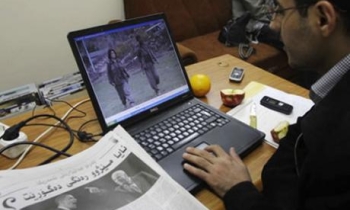British-Russian relations have taken a nosedive. BBC's Russian-language service will no longer be heard on Russian FM radio, after the country's media regulator ordered that it be removed.
On August 17, the management of Bolshoye Radio announced that it would no longer broadcast the BBC’s World Service programmes in the Russian language. The radio station is the BBC’s last FM partner in Russia. News reports suggested that the Moscow FM radio station had been pressured by the authorities to halt the BBC’s Russian Service.
The parent company of the radio station, Finam, which took over the radio station recently, said it had removed the programming because under the terms of its licence it was only allowed to broadcast original material. Finam spokesman Igor Ermachenkov told the Associated Press (AP): “It’s no secret that BBC was established as a broadcaster of foreign propaganda.â€
This has been disputed by BBC, which said in a press release that licencing documents reviewed last year gave Bolshoye Radio the right to broadcast external content up to a limit of approximately one-fifth of its total programming.
BBC Global News director Richard Sambrook said: “We are extremely disappointed that listeners to Bolshoye Radio will be unable to listen to our impartial and independent news and information programming in the high quality audibility of FM.†He called on Russian authorities to respect the licencing accord with Bolshoye Radio, claiming that it allowed for a fifth of its programming to be foreign-produced.
British-Russian relations are at their lowest point in years following Moscow's refusal to extradite Andrei Lugovoi, who British prosecutors have accused in the radioactive polonium poisoning of Alexander Litvinenko in November 2006. The countries exchanged tit-for-tat diplomatic expulsions last month. The British Embassy is supporting the BBC's efforts to get back on the air, an embassy spokesman said Friday.
Commenting on the situation, International Press Institute (IPI) Director Johann P Fritz said, "I hope that the removal of the BBC World Service from a Russian FM radio station is not the start of a return to cold-war limitations on press freedom and freedom of expression within Russia."
"Since 2000, the Russian government has sought to obtain greater control over information and has tightened its grip on the media, particularly broadcasting. In addition, foreign NGOs have also faced pressure from the authorities. With parliamentary elections later this year, and presidential elections in March 2008, it is possible that the removal of BBC is part of a policy to control the media during this crucial period."
"I would encourage Bolshoye Radio to allow the BBC World Service to continue broadcasting on the station’s airwaves and I would ask the authorities to do more to protect the right of the Russian people to receive a plurality of information from both national and international sources," added Fritz.
“There is absolutely no justification, either political or technical, for this censorship,†Reporters sans Frontières (RSF) reacted. “Is Russia taking the lead from China or Zimbabwe, where BBC is jammed? We hope a rapid solution will be found to this problem and that the BBC will soon be available on FM again.â€
BBC has faced similar problems in the past, IPI said in a statement. On November 24, 2006, Radio Arsenal in Moscow stopped broadcasting the BBC’s programme content. The decision to halt broadcasting occurred one day after the poisoning of Alexander Litvinenko in London.









